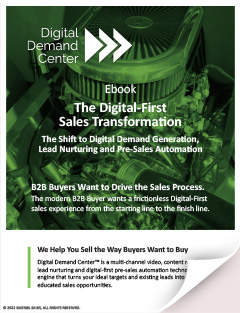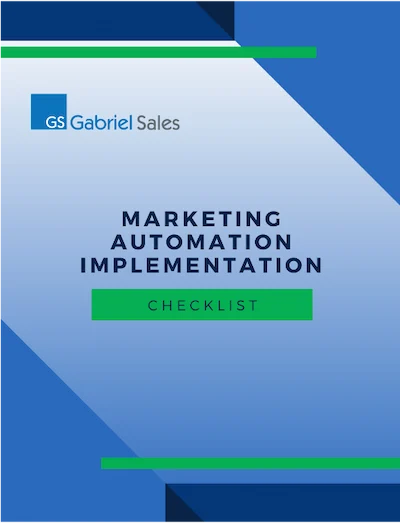 In the past few years, many B2B companies have started blogs and YouTube channels, joined social media networks, started hosting webinars and more—having been told that putting digital content out into the world would translate to increased revenue.
In the past few years, many B2B companies have started blogs and YouTube channels, joined social media networks, started hosting webinars and more—having been told that putting digital content out into the world would translate to increased revenue.
For most companies, B2B content marketing has now become an integral part of their overall marketing program. In terms of lead generation, nurturing and relationship building, content marketing has seen tremendous success. However, we believe content marketing is successful only if it leads to an impact on sales. At the end of the day, if your content isn’t converting prospects into leads or customers, it isn’t doing its job.
In order to help you create more effective and engaging B2B marketing content, here are five things you may be doing that hurt your conversion rates:
1. You aren’t thinking about content creation strategically.
You might have the ability to produce quality content. That quality content might even be read frequently. However, if that content isn’t backed by a strategy to guide prospects from one stage of the sales cycle to the next, it won’t help you convert leads.
In order for B2B marketing content to be useful for conversion, you need to map out the stages of your buyer’s buying cycle and then develop different pieces of content to match each stage. The purpose of this is to allow you buyer to take themselves through their buying cycle on their own. This means you need basic level, purely educational blog posts to help with discovery as well as highly technical product/software demos to encourage the close—and everything in between. By thinking strategically about content creation, you ensure that every piece of content you create has a purpose and end goal in mind, leading to dramatically increased conversion.
2. You aren’t talking in specifics.
A lot of B2B content marketing gets ignored because it doesn’t really say much. Everyone can say their solution “increases ROI” or “cuts expenses”, but that doesn’t actually tell your prospects anything about how you are different than your competitors. By avoiding specifics in your marketing content, your prospects are left wondering, “OK, but how does that work exactly?” or worse, “Does this person even know what they are talking about?”
While you don’t want to be overly technical and talk over the heads of your prospects, you do want your content to convince them of your expertise. By going into specific details when appropriate (i.e. when you are explaining your value proposition), your prospects feel like they are educated enough to make an informed purchase decision.




